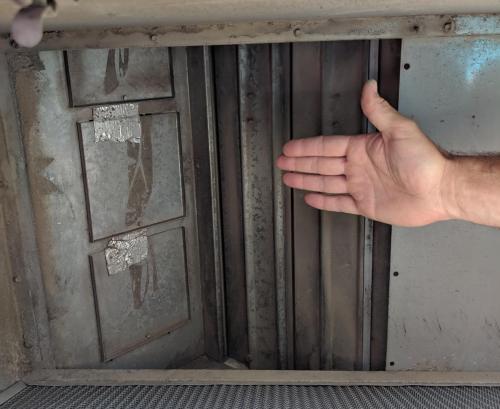Advanced HVAC Topics
Changes to HVAC operations and equipment upgrades have the potential to save a lot of energy. However, upgrades may be costly, so a focus on schedule changes and improved maintenance may be more accessible to building managers. Ensuring proper maintenance of HVAC systems can improve the reliability and peak performance of HVAC systems, and avoid costly future repairs. Matching HVAC runtime with occupancy ensures that spaces are heated and cooled when people are present in the building, and saves energy when the building is empty. If there is funding available for equipment upgrades or the current equipment is aging, more efficient systems can reduce energy consumption.
HVAC Energy Conservation
The importance of turning equipment down or off when a building isn't occupied.
There is a big opportunity to save energy if a building's HVAC schedule doesn't match the occupancy schedule. Typically, an HVAC is scheduled conservatively and will run for hours beyond the building's occupied hours. This is an auditor's opportunity to suggest an improved schedule with an energy conservation measure that will have a big impact. The recommendation of turning HVAC equipment down or off when the building isn't occupied is relevant regardless of the age of the building and HVAC system. Even if a system is old, it will still save energy to run an inefficient and old system less often. Additionally, a change to the HVAC schedule is low-effort and low cost with a short payback relative to other energy conservation and efficiency measures.
What is an economizer?

An economizer consists of the outside air damper and the return air damper. They open and close in unison so when one is open the other is closed.
For example, if there is cold air outside, it is brought straight into the building through the outside air damper. In this scenario, the return air damper is closed. Since the air from outside is cool (for example, 65°F), the HVAC system doesn't need to use energy to cool the air. Cooling air uses energy, and economizing avoids cooling the air and is a more efficient system.
What is economizing?
Fresh air comes into the building through the outside air damper. This air is conditioned by the HVAC system (heated or cooled) before being blown to the rooms of the building. Air going to the rooms of a building is called supply air. After mixing with the air in a room, the air returns to the HVAC system through the return damper.
Economizing is deciding to use either return air (returned from the building HVAC system) or 100% outside air for conditioning our indoor space. We always choose the most efficient source of air to take advantage of "free cooling" when it's cold outside.

For more information, check out these resources:
- Department of Energy: Exploring HVAC Solutions
- Facilities Net - “The Search for Savings”
- Why Conduct an HVAC Audit